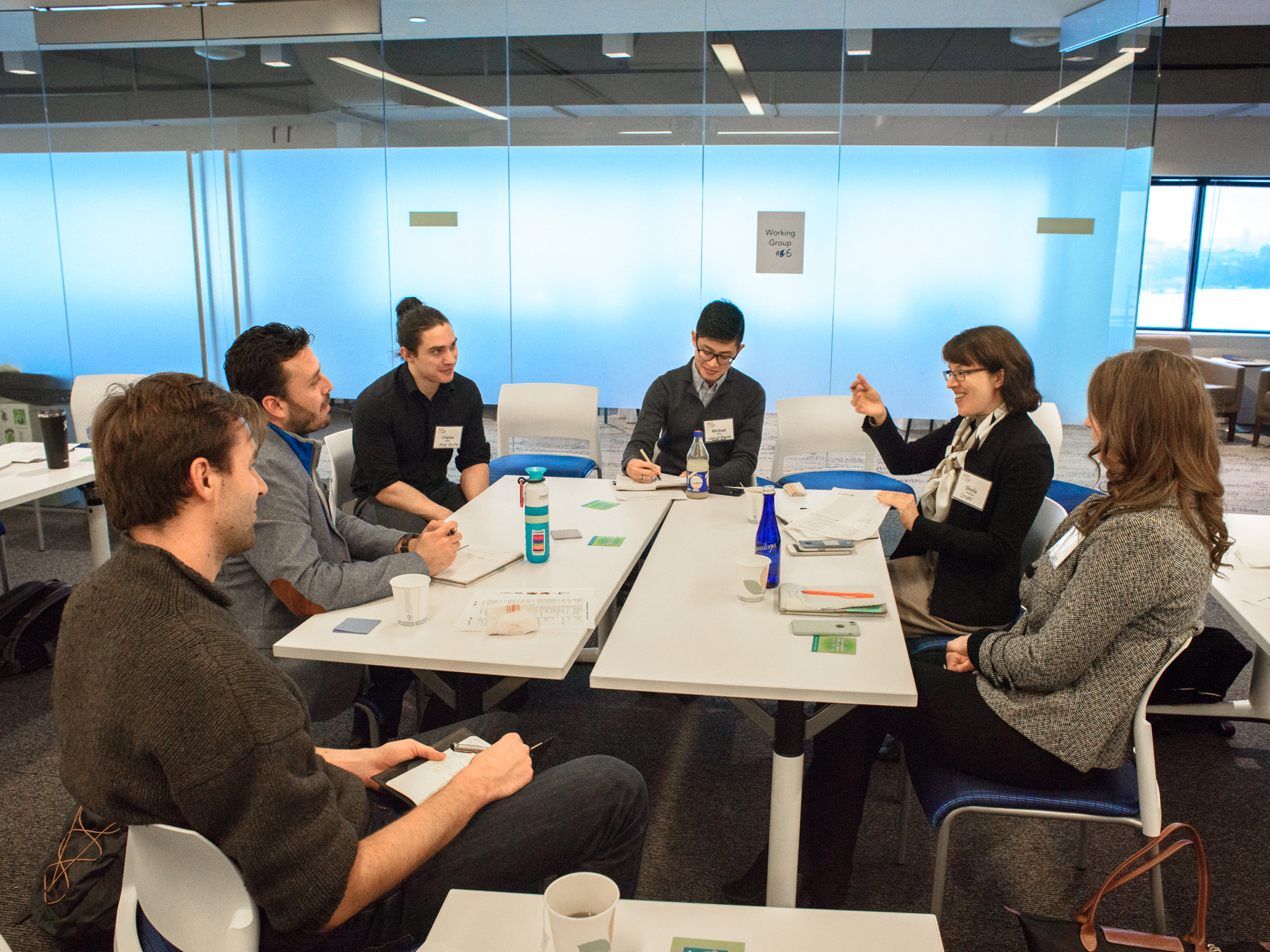Menu
Afro-InterAmerican Forum on Climate Change
Elevating the expertise and perspective of Afro-descendant communities throughout the Americas in climate change decision-making.
Our Challenge
For Afro-descendant communities across the Americas and the Caribbean, the climate crisis looms disproportionately large. An uptick in extreme, devastating weather events in the last decade has upended coastal Afro-descendant communities, with major hurricanes damaging homes, crippling food and water supplies and disrupting livelihoods from Colombia to the Carolinas. Down the road, increasing volatility in precipitation and temperature could also have permanent negative consequences — exacerbating the conditions to which these already vulnerable communities are exposed.
Because they live in areas of strategic environmental importance — like carbon-rich coastal areas, mangroves and tropical forests — Afro-descendant communities are also in a unique position to lead and create solutions to the climate crisis, as well as address the interconnected crises of biodiversity loss, inequity and socioeconomic exclusion, drug trafficking, migration and violence.
However, these communities’ voices remain absent at the regional, national and global levels when it comes to debate and decision-making about the environment, climate change and nature conservation.
“It is fundamental and critical that decisions made at the international and national levels feature the voices, policy priorities and world views of Afro-descendent communities across the Americas. We are excited to advance this work in this critical time for racial and environmental justice, climate action and resilience planning.”
— Luis Gilberto Murillo-Urrutia, Colombian Ambassador to the United States.

Inception workshop of the AIFCC with Afro-descendant leaders of the Americas, Glasgow, UK, November 2021.
Forum Overview
Co-developed by Afro-descendant leaders from throughout the Americas, the Afro-InterAmerican Forum on Climate Change (AIFCC or the Forum) provides greater visibility to the challenges Afro-descendant leaders face in addressing significant environmental issues, including climate risks and biodiversity loss and their contributions to the stewardship of areas of critical environmental importance and their global environmental services. The Forum will provide on-the-ground resources for Afro-descendant communities to engage in this work via research and community innovation projects via sub-regional hubs. It will also provide the international platform to allow leaders to influence policies and major decisions at the international, national and regional scales. Through this work, the AIFCC will create a major impact, including a common narrative, a call to action, the co-creation of knowledge with communities, and financial support for Afro-descendant populations on climate change issues. Through these activities, the Forum will advance environmental and racial justice.

Launch of the AIFCC at the Panama Pavilion during COP26, Glasgow, UK, November 2021.
Formally announced at the U.N. climate conference (COP26) in Glasgow, the AIFCC will be a centralized group of Afro-descendant leaders from across the Americas. The first meeting was convened by Luis Gilberto Murillo-Urrutia, Colombian Ambassador to the United States; Epsy Campbell, Vice President of Costa Rica; Kelvin Alie, Senior Vice President at Conservation International; and U.S. Congressman Gregory Meeks. Supporting these leaders and others, MIT’s Environmental Solutions Initiative (ESI) and Conservation International provide technical guidance to the AIFCC.
Implementation
The AIFCC works in three areas:
- Advocacy and awareness building: Convene Afro-descendant leaders at international forums such as COP climate change and biodiversity summits and make visible the unique climate change and environmental challenges faced by Afro-descendent regions in the Americas.
- Community innovation and engagement: Design, co-create and disseminate engagement and community-based planning models, develop resources and fund innovation and entrepreneurship.
- Research and data collection: Collect data, map best local practices, visualize and document lessons learned related to natural climate solutions in the Afro-descendant territories, data collection and technology piloting and development led by MIT Environmental Solutions Initiative in partnership with Conservation International, and local organizations including Corporación Mano Cambiada, Red de Jóvenes de Ambiente de Chocó, SUDECC, Instituto de Referência Negra Peregum, Nuestra América Verde, ONECA, Afro Global Consulting, Universidad Autónoma de Chiriqui, Fundación Panamá Sostenible, Latinas en Poder and Codechocó and Coalizão Negra por Direitos.
Contact
To learn more or get involved with the initiative, please contact Marcela Angel, Research Program Director at MIT’s Environmental Solutions Initiative (marcelaa@mit.edu) or Kelvin Alie, Senior Vice President Field Partnerships at Conservation International (kalie@conservation.org).
AIFCC NEWS
https://thehill.com/blogs/congress-blog/energy-environment/583934-those-on-the-front-lines-of-climate-change-should-be
https://sur.conectas.org/es/equidad-ambiental-y-justicia-racial/
https://forbes.co/2021/12/21/actualidad/quienes-lideran-la-lucha-por-la-inclusion-en-el-debate-del-cambio-climatico/

















